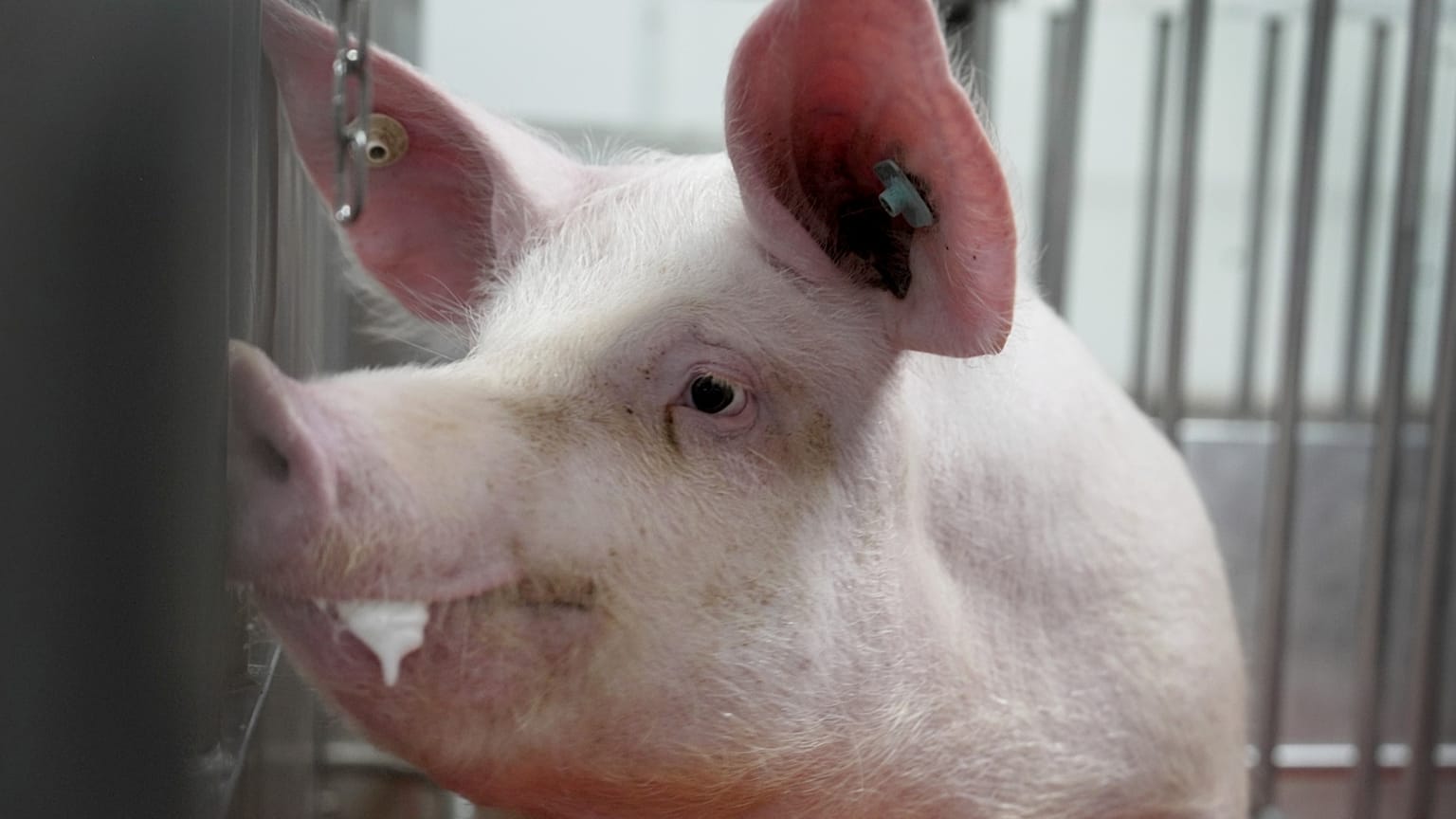Science
US Launches First Clinical Trial for Pig Kidney Transplants

The first clinical trial testing pig kidney transplants in humans has commenced in the United States, marking a significant milestone in the field of xenotransplantation. On Monday, United Therapeutics announced that the initial successful transplant was performed at NYU Langone Health in New York City. This trial aims to explore whether genetically modified pig kidneys could offer a viable solution for patients suffering from kidney failure.
As the first known clinical trials of xenotransplantation globally, this initiative is being closely monitored. eGenesis, another US company, is preparing to begin its own pig kidney trial in the coming months. The NYU trial will initially involve six participants, with the potential to expand to as many as 50 if successful, as additional transplantation centers join the effort. To maintain participant confidentiality, details regarding the surgery date and patient identities have not been disclosed.
Dr. Robert Montgomery, who leads the transplant team at NYU, expressed optimism about the trial’s direction. The hospital has already compiled a list of interested patients, emphasizing the urgency of this research. Currently, more than 100,000 people are on the US transplant waiting list, primarily for kidneys, with thousands succumbing while waiting for viable organs.
The US Food and Drug Administration (FDA) has permitted these rigorous studies following a series of compassionate use experiments. Initial attempts to transplant gene-edited pig kidneys yielded mixed outcomes, with the first two transplants proving to be short-lived. As a response, medical professionals shifted their focus to patients in greater need of a kidney but who were less critically ill than previous recipients.
Notably, one patient at NYU had a pig kidney function for 130 days before returning to dialysis. Another patient at Massachusetts General Hospital achieved a record of 271 days with a pig kidney, although he too has since returned to dialysis after the organ’s function declined. Additional patients, including another individual at Mass General and a woman in China, are known to be living with pig kidneys.
Montgomery highlighted the importance of the ability to return to dialysis as a safety net for participants. In Europe, over 10,000 people are on kidney waiting lists across eight countries, according to the Eurotransplant International Foundation. This underscores the pressing need for innovative solutions in organ transplantation.
Scientists are genetically modifying pigs to produce organs that closely resemble human anatomical structures. This approach aims to reduce the likelihood of immediate rejection by the human immune system. The trial conducted by United Therapeutics is testing pig kidneys with 10 gene edits, removing genes that trigger early rejection and excessive organ growth while adding human genes to enhance compatibility.
As this groundbreaking trial unfolds, it holds the potential to reshape the landscape of organ transplantation, offering hope to countless patients in desperate need of life-saving procedures.
-

 Top Stories2 months ago
Top Stories2 months agoTributes Surge for 9-Year-Old Leon Briody After Cancer Battle
-

 Entertainment3 months ago
Entertainment3 months agoAimee Osbourne Joins Family for Emotional Tribute to Ozzy
-

 Politics3 months ago
Politics3 months agoDanny Healy-Rae Considers Complaint After Altercation with Garda
-

 Top Stories3 months ago
Top Stories3 months agoIreland Enjoys Summer Heat as Hurricane Erin Approaches Atlantic
-

 World4 months ago
World4 months agoHawaii Commemorates 80 Years Since Hiroshima Bombing with Ceremony
-

 Top Stories2 months ago
Top Stories2 months agoNewcastle West Woman Patricia Foley Found Safe After Urgent Search
-

 Top Stories4 months ago
Top Stories4 months agoFianna Fáil TDs Urgently Consider Maire Geoghegan-Quinn for Presidency
-

 World4 months ago
World4 months agoGaza Aid Distribution Tragedy: 20 Killed Amid Ongoing Violence
-

 World4 months ago
World4 months agoCouple Convicted of Murdering Two-Year-Old Grandson in Wales
-

 Top Stories3 months ago
Top Stories3 months agoClimbing Errigal: A Must-Do Summer Adventure in Donegal
-

 World4 months ago
World4 months agoAristocrat Constance Marten and Partner Convicted of Infant Murder
-

 Top Stories3 months ago
Top Stories3 months agoHike Donegal’s Errigal Mountain NOW for Unforgettable Summer Views









